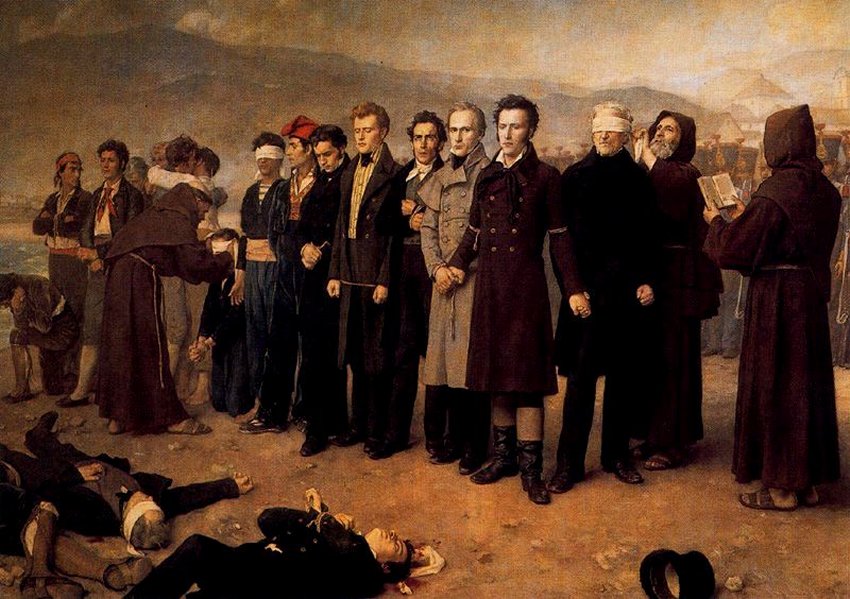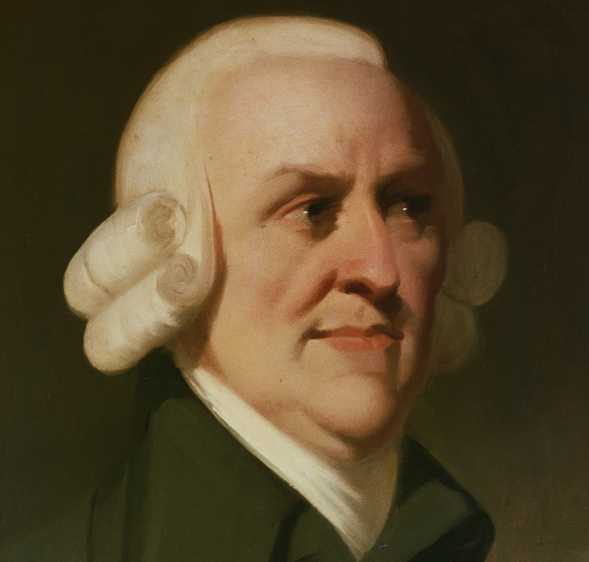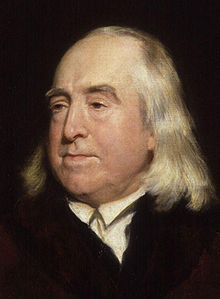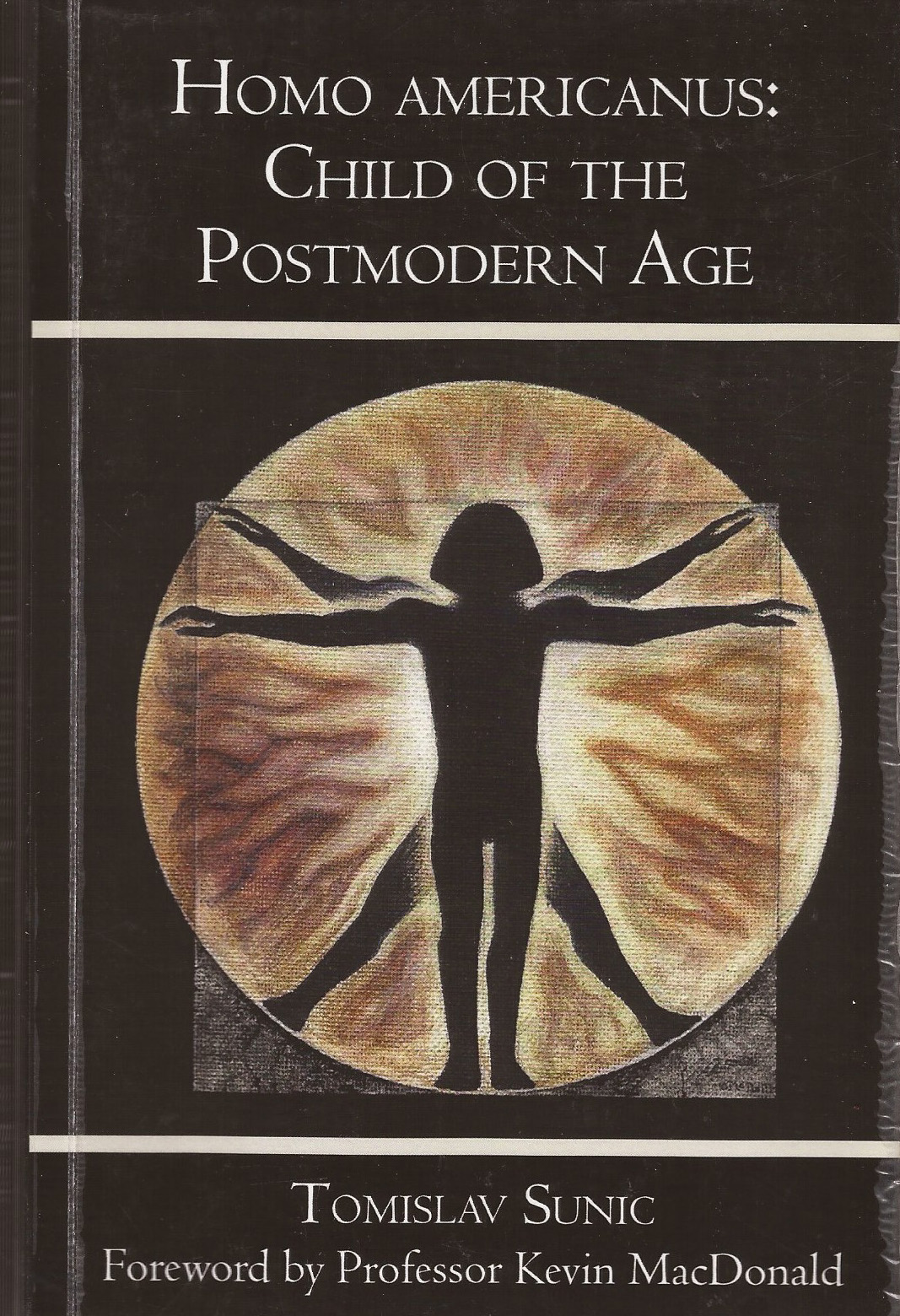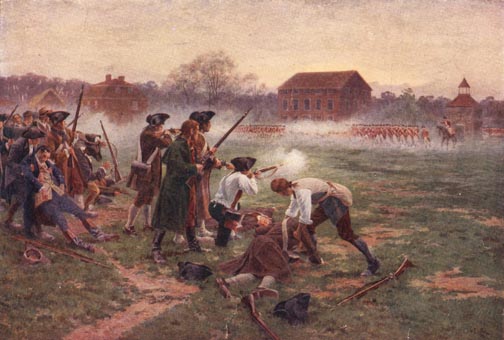Free trade, and the deindustrialization of America
by William Pierce

Every regular television news watcher has heard the expression “New World Order” often enough now to be familiar with it. George Bush really popularized the expression during the last two years of his administration. Prior to that one heard only occasional veiled references to it, but as Mr. Bush ordered wave after wave of bombers over Iraq to pound Baghdad into rubble and attempted to kill Iraq’s President with “smart” bombs, he spoke repeatedly of the need to punish those who tried to stand in the way of the New World Order.
Bill Clinton has used the expression even more freely: he has referred to the New World Order in connection with his futile efforts to assassinate Somalia’s uppity warlord Mohammed Aidid, with his support of Russia’s current clown prince Boris Yeltsin, and, most recently, with his campaign to push the North American Free Trade Agreement (NAFTA) through the Congress. Probably most of you remember Mr Clinton talking on television about NAFTA being essential for the New World Order and for equality in the world.
Most people who have become familiar with the term assume that it is merely an abstraction: a convenient label for referring, in a general, loose sort of way, to the reordering of international power relationships which has been going on ever since the Second World War—and especially since the collapse of the Soviet Empire at the beginning of this decade.
Actually, for the initiated, the New World Order has a much more specific and concrete meaning. In brief, it is a utopian system in which the U.S. economy (along with the economy of every other nation) will be “globalized”; in which the wage levels of U.S. and European workers will be brought down to those of workers in the Third World; in which national boundaries will for all practical purposes cease to exist; in which an increased flow of Third World immigrants into the United States and Europe will have produced a non-White majority everywhere in the formerly White areas of the world; in which an elite consisting of international financiers and the masters of the mass media will call the shots; and in which so-called “peace keeping” forces from the United Nations will be used to keep anyone from opting out of the system.
This particular scheme for world rule has very deep historical roots. Tracing those roots is fascinating, but I won’t have time for that on this program today. If you want to study the historical details, then you should read my article on the New World Order in the current issue of National Vanguard magazine, which is available from the producer of this program.
I’ll simply say today that the New World Order conspiracy had its origins in a series of international Zionist conferences held around the beginning of this century. It picked up steam during the First World War and really began acquiring concrete substance with the formation of a number of organizations in the period immediately after that war, the foremost of which was the Council on Foreign Relations. By the end of the Second World War the New World Order planners formed a virtual ruling class in America with total control of U.S. foreign policy and also a growing power to mold domestic policy to suit their internationalist aims. What these people understood, long before anyone else did, is the potential power of the mass media. They understood what enormous, hidden political power could be wielded in an age of mass democracy by a tiny group of well-organized people who could manipulate public opinion by controlling the mass media.
It should be noted that the New World Order booster club has developed a rather diverse membership as its schemes have matured. There are, of course, the original, power-hungry conspirators, who believe that their god intended for them to rule the world, and there are the cynical politicians of the Bush/Clinton stripe who go along with the conspirators, hoping to receive a few choice scraps from their table.
Then there are the crazies: the homosexuals and feminists, for example, who see in the New World Order the antithesis of the heterosexual, patriarchal world they hate with such insane fervor. Along with these are the lunatic egalitarians, who are hell-bent on “equalizing” everyone.
A substantial portion of the membership consists of a rabble of academics and literati who simply want to be fashionable; they would as enthusiastically support any other intellectual fashion possessing as large and skillful a press claque.
Besides all of these, however, there are many people on the New World Order bandwagon today for more or less benign reasons. The world population really is far too large. The ongoing destruction of the global ecosystem really is unacceptable. Something must be done—and soon. Many of those who recognize these facts are neither power-hungry cynics nor deranged haters nor even fashion-conscious eggheads, but instead are sane, principled men who simply do not have the moral courage to deal in a forthright way with the population explosion in the non-White world and with a number of other pressing demographic and ecological problems. They have opted for what seems to them the only solution for halting the self-destruction of the world which has a sufficiently powerful advocacy group behind it to be feasible. They really believe that under the New World Order Kenyans no longer will be permitted to machine-gun herds of elephants from helicopters in order to collect their tusks, Brazilians no longer will be permitted to destroy the rain forests with chainsaws and flamethrowers, and Haitians will be forced to use condoms. Even White Americans will be forced to curb their wasteful habits.
The New World Order schemers have played a very significant role in bringing about many social and economic changes in America, and I could spend a lot more time than we have today talking about these changes—and why the internationalists wanted them. If you want to understand that part of the scheme you’ll just have to read my article in the current issue of National Vanguard magazine. Today I must limit myself to just one New World Order policy, and that’s so-called “free” trade and what that policy means for America.
Our first really notable experience with “free” trade in the post-Second World War period was with Japan. A few years after the war Japanese cameras began displacing U.S.-made cameras from stores in the United States, until today they totally dominate the market: Nikon, Canon, Minolta, Pentax, Olympus, Fuji—they’re all Japanese. The only two American brands left are Polaroid and Kodak. If you’ll go into a camera store and look carefully at the Polaroid and Kodak cameras on display, howeever, you’ll discover that most of them were actually manufactured in Japan or elsewhere, not in the United States.
After succeeding in establishing a virtual camera monopoly the Japanese began moving into the consumer electronics business: portable radios, television receivers, VCRs, pocket calculators, microwave ovens, hi-fi tuners and amplifiers, etc. Within two decades they virtually wiped out domestic production. The few U.S. consumer electronics companies still surviving have their products made in Asia and then put their names on them and bring them into this country to sell them.
The average American saw nothing amiss with this; indeed, he regarded it as a boon. More products were available to him, at lower prices, than there would have been if Japanese products had been kept out by trade barriers. The unhappy voices of the few hundred thousand Americans who had been employed in the camera and consumer electronics industries were drowned out by those of millions of happy consumers. When Japanese automobiles began appearing on American streets in large numbers in the 1970s, there was more of a reaction. The unionized automobile and steel workers were able to make their voices heard. They smashed Japanese cars with sledgehammers in publicity stunts designed to win sympathy for their plight. Even the politicians who had been bought by the internationalists got into the act: worried by the threat of losing union votes, they put on serious faces and talked to the television cameras about limiting the number of Japanese cars which could be brought into the country. The percentage of Hondas, Toyotas, Subarus, Nissans, and other Japanese vehicles sold in America eventually stopped rising. General Motors, Ford, and Chrysler pulled in their belts, fired a few hundred thousand American workers, and announced that they would survive. Although the U.S. steel-making industry was hit hard and was forced to close dozens of plants, it also managed to hang onto life.
All was not quite as it seemed, however. Americans were reassured by the sight of new Fords, Chevrolets, and Dodges on their highways, but in many cases not much more than the name was actually American. The Chrysler corporation sold Dodge Colts which, in fact, were made in Japan by Mitsubishi. Under a Chevrolet label General Motors sold light pickup trucks which were produced entirely in Japan. Ford did the same thing, not only with some of its consumer vehicles, but also with its farm tractors.
Japan is not the only country which has claimed a part of what used to be the American automobile industry. U.S. auto companies have stayed in business only by having more and more of the work which goes into their cars performed outside of the United States, in order to take advantage of vastly cheaper labor. Wiring harnesses from Mexico, electronic ignition modules from Taiwan, seat covers and other upholstery from Korea, alternators from Brazil, speedometers and other dashboard instruments from Hong Kong: more and more of what is sold as “American” is made elsewhere and only assembled in the United States.
The Asian country which has benefited most in recent years from the U.S. policy of “free” trade is China. The Chinese assault on American industry was not widely noticed at first, because the Chinese did not begin with high-profile consumer items, such as cars or television receivers. They began at a more basic level, first with machine tools and then with hand tools. They have virtually destroyed the American machine-tool industry singlehandedly.
In the 1950s the United States was the world leader in the manufacture of machine tools, with more than 50 per cent of the total production. Machine tools—lathes, milling machines, grinders, stamping machines, and the other large, motorized tools used in factories—are the most essential component of a nation’s industrial base. Today we make only six per cent of the world’s machine tools. In the last decade alone our share of the world’s production has declined by a factor of three, down from 19 per cent in 1984. It’s still dropping. In another five years we’ll have only three or four makers of machine tools left, and they’ll be making only highly specialized, computer-controlled tools. All of the general-purpose machine tools used in the United States will come from China or Brazil.
The same thing is happening to the U.S. hand-tool industry. If one examines the plastic-packaged tools and accessories hanging on the display peg-boards in any of the larger automotive parts stores—the spark plug wrenches and screwdriver sets and compression testers—one will find that somewhere between two-thirds and three-quarters of them are imported from Asia, mostly from China. With the larger tools—hydraulic floor jacks, for example—the situation is worse: the chances are about nine out of ten that one will find a “Made in China” label. If there are any U.S.-made jacks still to be found, they will be priced at about three times the price of a Chinese jack of similar quality. American manufacturers, with their much higher labor costs, simply cannot compete with Chinese industry, and they are being driven out of business.
For the past few years the Chinese have been moving into the production of low-priced consumer goods as well: the sort of plastic household goods that housewives buy in K-Marts or Wal-Marts. Because these goods are priced substantially lower than similar American products, consumers welcome them. They do not consider the fact that the well-paid American workers who formerly made such goods in U.S. factories now are scrambling to find service-industry employment at substantially lower wages.
The Chinese (including those in Hong Kong and Taiwan) and the Japanese are not the only Asians who are destroying the U.S. industrial base. The Koreans, for example, have had the U.S. clothing industry under attack for years and have devastated large sections of it. Mr. Clinton has just invited the Vietnamese to join the feeding frenzy.
There is a double significance to this transfer of American industry out of the country. In the first place, it lowers the average wage level of American workers, as they are forced to move from manufacturing into a service industry or into less than full-time employment. And although factory workers are the first to be hit, eventually most other segments of the work force suffer as well, even the yuppies and others who would never think of working with their hands. When people who used to work in factories have less money to spend, there’s less money to earned by everyone.
In the second place, the transfer of industry out of the United States robs us of national self-sufficiency. It may not matter much whether we have factories for producing panytyhose and plastic hair curlers or we import these things from Korea, but it matters very much whether or not we produce our own machine tools. If the Koreans give us an ultimatum: do what we say or no more plastic hair curlers, we can laugh in their faces. If the Chinese decide not to sell us more machine tools, however, we’ll be in trouble.
This, of course, is exactly what the New World Order boys planned. “Interdependence,” they call it. They began selling us on the virtues of interdependence—and the evils of independence—as early as the 1950s. The New World Order is a system in which every country is dependent on many other countries for its necessities of life, and no country is independent enough to opt out of the system and go its own way.
“Free” trade is essential to the whole scheme. The controlled media deliberately have created the impression in the public mind that “protectionism”—the regulation of imports through the imposition of tariffs or quotas—is a corrupt policy which benefits greedy industrialists at the expense of everyone else. Actually, it is a necessity for national survival and progress. Consider just three facts:
Fact Number 1: Merchants always will buy their manufactured goods from the supplier who will give them the best price for goods of a specified quality. If the best price is from a foreign supplier, and if international trade is unregulated, then the merchants will import their goods from abroad. On an individual basis the merchants really have no choice in the matter: a widget merchant who pays two or three times as much for his American-made widgets as other widget merchants do for their Chinese-made widgets soon will be out of the widget business.
Fact Number 2: For most manufactured goods the cost of the labor which went into them is the largest single component of the total production cost. When one country has a much lower wage scale than another country, then it will be able to sell its manufactured goods at a lower price, other things being equal. The other things are labor discipline, organizational skill, and the possession of the necessary machinery and raw materials. Thus, Ghana or Zambia, for example, could not compete with the United States in the production of manufactured goods even if it paid nothing at all for labor, because it lacks labor discipline, organizational ability, and an industrial base. China, on the other hand, has very cheap labor which is better disciplined than that in America, as well as the needed organizational skills for utilizing that labor effectively in large-scale enterprises. Furthermore, China has painstakingly built up its industrial base—with our collaboration—during the past 40 years or so.
Fact Number 3: When industrial production moves from a country with high wages to a country with low wages, the immediate effect will be a reduction in the difference in wages between the two countries. Wages in the country which gains the industry will rise, and wages in the country which loses the industry will fall. This will be true whether the production is in the hands of nationally based companies or a multi-national corporation. Thus, if the North American Free Trade Agreement results in the Ford Motor Company closing a plant in Detroit and building a new one in Tijuana for the production of Fords, wages will rise in Mexico and fall in the United States just as surely as if the production had shifted from Ford to a company owned entirely by Mexicans.
What this means is that if an industrialized country which has built up a high standard of living for its citizens wants to maintain its industrial base and its living standard, it must regulate imports of goods from countries with lower wage scales. If it does not, its industrial base will be eroded, and its living standard will fall. This is a fairly simple economic fact, and most Americans could understand it if the proponents of the New World Order had not thrown up a smoke screen of obfuscation. They claim that there will be “readjustments” to be made when all trade barriers are down, but that in the long run everyone will benefit. We will import more goods, they say, but we also will export more, and everything will even out. That is not true, and they know it. What will “even out” will be wage scales around the world. The rich countries will become less rich, and the poor countries will become less poor, and if the process continues long enough wage scales—and standards of living—will approach equality, which is what the egalitarian ideologues among the globalists really are aiming at. To them the present state of affairs, with White Americans earning 20 times as much as Mexican peons or Chinese coolies, is “unjust.”
Other New World Order ideologues see in the interdependence which will result from wiping out a number of strategically vital industries in the United States (and other industrialized nations) a sure way to prevent international conflict in the future. They have taught two generations of Americans that “cooperation” is a virtue in itself, and we will be a more virtuous nation when we no longer are able to act unilaterally: that is, when we must secure the agreement of the countries which supply our ball bearings and our computer chips before we make a major move in international affairs.
All of this is not to say that international trade is a bad thing in itself. Trade, like many other things, should be an instrument of national policy. A nation’s international trade should be regulated with one aim in mind: to maximize the security and prosperity of the nation. Americans can hardly expect that of a government headed by a man who only two decades ago was demonstrating in the street with other draft-dodgers, gleefully chanting, “Ho, Ho, Ho Chi Minh, the Viet Cong’s gonna win!”
The only environment in which unregulated trade can be tolerated is within a natural community of interest: i.e., within a group of political entities which have a common sense of identity and a common set of interests, determined by Nature rather than by politics alone. In such an environment unrestricted trade usually is beneficial. For example, we do not want to protect Michigan’s automobile industry from competition by an automobile manufacturer in Indiana or Texas. If Texans can build a better car at a lower price, then we, as Americans, are better off for it. We don’t worry about people in Michigan becoming dependent on Texans, because we’re the same people.
But we damned well better worry about being dependent on Chinese and Mexicans, who are fundamentally different from us in many ways.
Most White Americans, I am sure, even if they have been taken in by the egalitarian propaganda that racial differences really don’t mean anything, are not willing to have their own living standards continue to go down, so that Chinese and Mexican living standards can rise. And very few real Americans are willing to sacrifice our national independence and security to a scheme which will make us dependent on countries like China and Mexico for a lot more than cheap consumer goods.
But that’s exactly what’s happening now. Mr. Clinton and the gang in the White House are pushing as hard as they can to destroy American sovereignty, to boost interdependence at the expense of national independence, and to make us equal to Mexicans and Chinese.
The only way we can stop this is to reach millions of people with our message, to make them understand the consequences of the ongoing destruction of America’s industrial base and the motives of those responsible for it. We must make every American understand what a dangerous and evil scheme the New World Order is and what disastrous consequences it will have for all of us if we fail to derail it while there is still time.
—March 19, 1994
